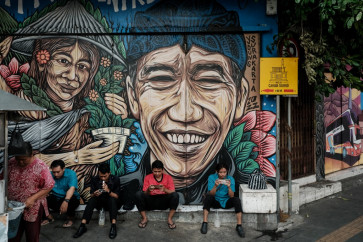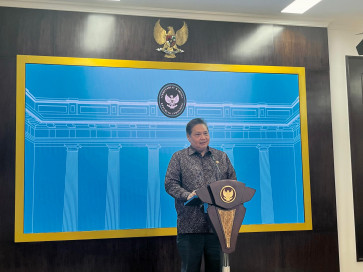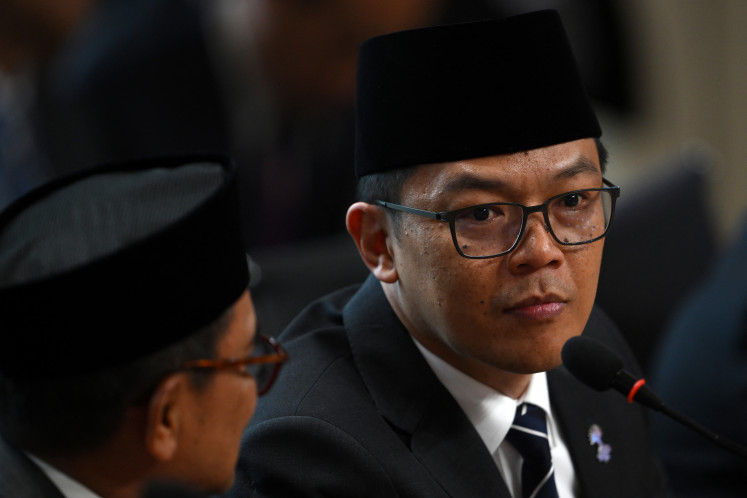Indonesian joggers run on personal philosophy and passion
Change text size
Gift Premium Articles
to Anyone

For its devotees, running is just as much about mental contentment as it is about physical health.
Running was once perceived as a disruption, a big question mark for the 20th-century modern individual and an insult to pedestrians. Why would you run? One should either walk or use public transportation to get from one place to another.
Now, running has become a culture in and of itself. The sport offers different meanings to different people. As with any commodity and sporting culture, it has cultural and functional values.
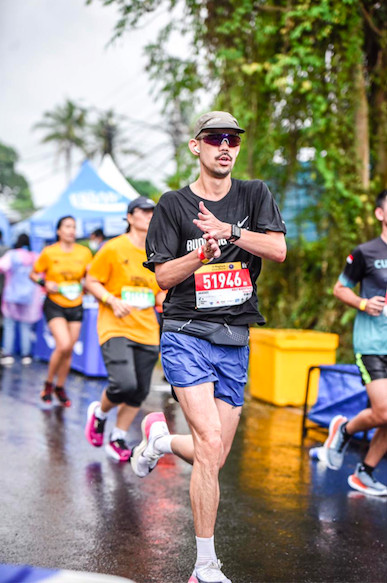
Philosophical reasons
Stefan Tirta started running eight years ago as an outlet to decompress.
“To clear my head and keep my legs running instead of my mind racing” is how the 29-year-old described her motivation. Research has shown a positive correlation between running in any capacity and better mental health.
Remedy Waloni said running had become an outlet for him, especially during 2020 and 2021, at the height of COVID-19 restrictions in Indonesia.
“I needed an outlet, so I started to run more. Running became sort of my therapy. Running teaches me humility because it’s such a humbling sport. You get your butt kicked every single day,” the 36-year-old explained.
The value of running evolves differently for each runner. For Stefan, it became an exploration of pain.
“From running, I learned two types of pain: the one that uses you and the one that you use. I also learned that [sometimes] easy is the hardest and slow is the fastest way.”
While non-runners may scoff at the philosophical values runners live by, the positive aspects of running can be boiled down to practicality. For Stefan, it became a way of coming to terms with being a middle-class worker.
“You will have to face failures daily because you are losing 90 percent of the time. The key is to show up and get back on the starting line repeatedly to see how much you progress through the back mirror. Just like hustling at work,” said Stefan.
Remedy and Stefan both completed a half marathon in under two hours on their first try. Remedy now focuses on trail running while Stefan continues a rigorous running routine for various road races.
Remedy, who also leads the band The Trees and The Wild, said there were “parallels between running and music [as] you can build your life around running. There’s a culture, lifestyle and community around running.”
He added that similar to music creation, running involved elements of self-doubt.
“You enjoy the process, but you don’t want to go too high or too low,” he said.
“Like in music, getting good results requires commitment and sacrifices,” Remedy adds. “It will be difficult if the people around us aren’t on the same page and don’t understand why you’re out running on a mountain for three to four hours every weekend.”
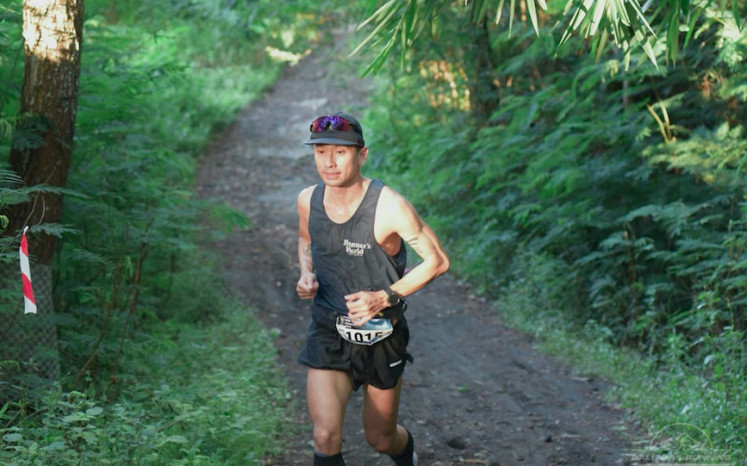
Inclusivity
If running can provide such meaning for young men, then what can running do for a 57-year-old woman? Fifi Fiana, 57, started running again to maintain her health after a medical procedure. She was an athlete in her teenage years.
“When I was young, there was a certain element of wanting to look good and be fast, but as I get older, I just want to maintain my fitness and immunity.”
Fifi started running in middle school and was a track athlete. She began running again in 2013, participating in the Jakarta Marathon with her two sons and younger brother.
“And now I am still running, and I hope I can still run in my seventies or eighties, even though I underwent a medical procedure to extract a tumor from my left knee back in 2014.”
Fifi has gone through multiple running phases, but it is a sport for one. As a track athlete, she went through her “jock” phase in middle school. When Fifi picked it up again, the meaning and goals had changed. It turned from being something she did for her physical and mental well-being into a form of bonding as she ran marathons with her family. Eventually, it became a form of competition with herself when Fifi ran the Osaka Marathon within her targeted time of 6 minutes per kilometer in 2017.
These three accounts hold a significant common thread: Running is an autonomous, private sport that mirrors daily lives. Drawing similarities between one runner and another doesn’t work, as its meaning relates heavily to each person’s life.
With analysts observing that over 200 million people have picked up running over the past ten years, its meaning and cultural significance continue to grow in relevance and influence.
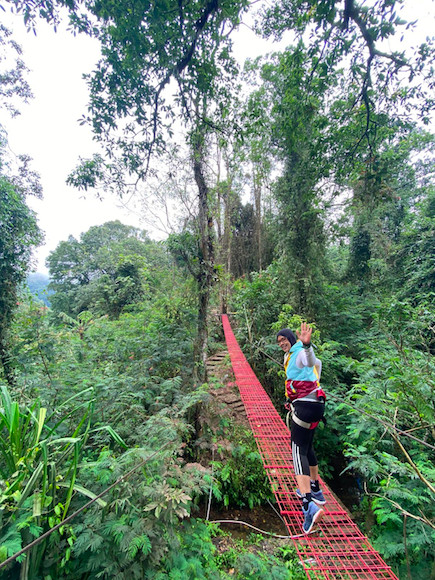
The economies of running
As running becomes more popular – particularly with middle- and upper-class Indonesians – its foray into a more consumerist culture has taken shape. This trend is seen in how trail running brands like Salomon collaborate with fashion brands such as Bodega or Dover Street Market.
Fifi developed a strong consumerist streak for running gear over a decade ago. She overcame it with a simple philosophy about such gear.
“I am glad that went on for only three years before I realized that there are three corridors within my spending habits: what I need, what I want to have and what I want to show.”
Fifi narrowed her purchases to only what she needed.
It is easy to fall into the trap of running gear consumerism with professional running technology readily available to casual runners. This technology, combined with a good sense of vanity, can justify purchasing expensive running gear from brands like Tracksmith and Satisfy that sometimes cost US$100 to $200 per piece. These are not difficult to run into at mass running events around Jakarta.
While Stefan admitted that “we are living in the best era of sports because of all these advancements”, he also added that “at the end of the day, you only need a pair of shoes, two to three running kits and the right mindset to run consistently for a fair amount of mileage before you need to refresh your gear. No upgrades required.”
“I think having tools to support running can be beneficial depending on the situation and type of running you’re doing. The challenge is how to be sustainable, to have a long-lasting product that is repairable, reusable and can be recycled,” Remedy said.
The most important thing for many is to find running – and the multiple meanings within it – worthwhile, whether to vent frustration, chase a target or just flash your expensive gear, because running is a primal sport.
As famed biology professor Bernd Heinrich once said in his book Why We Run: A Natural History, “There is nothing quite so deep, gentle and irrational as our running – and nothing quite so savage, so wild.”

